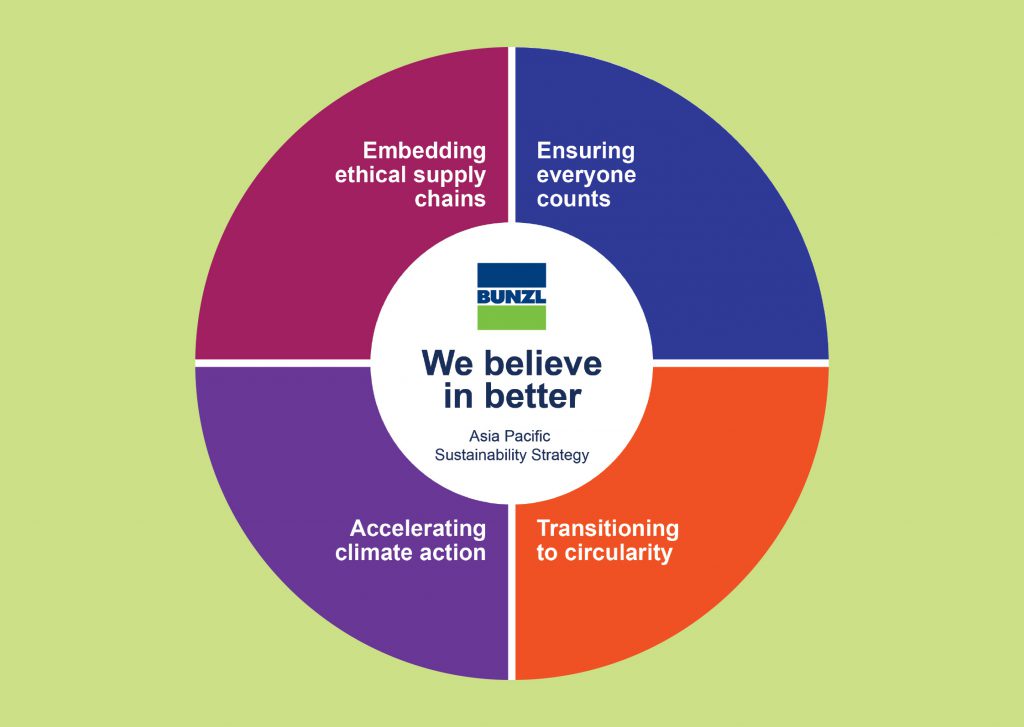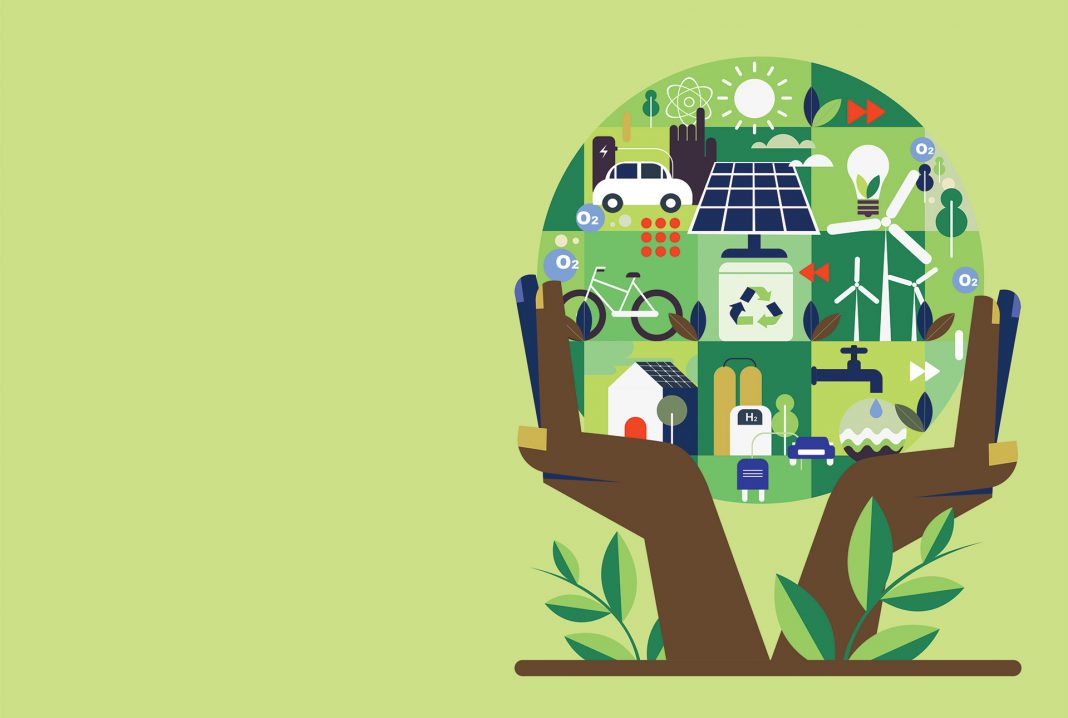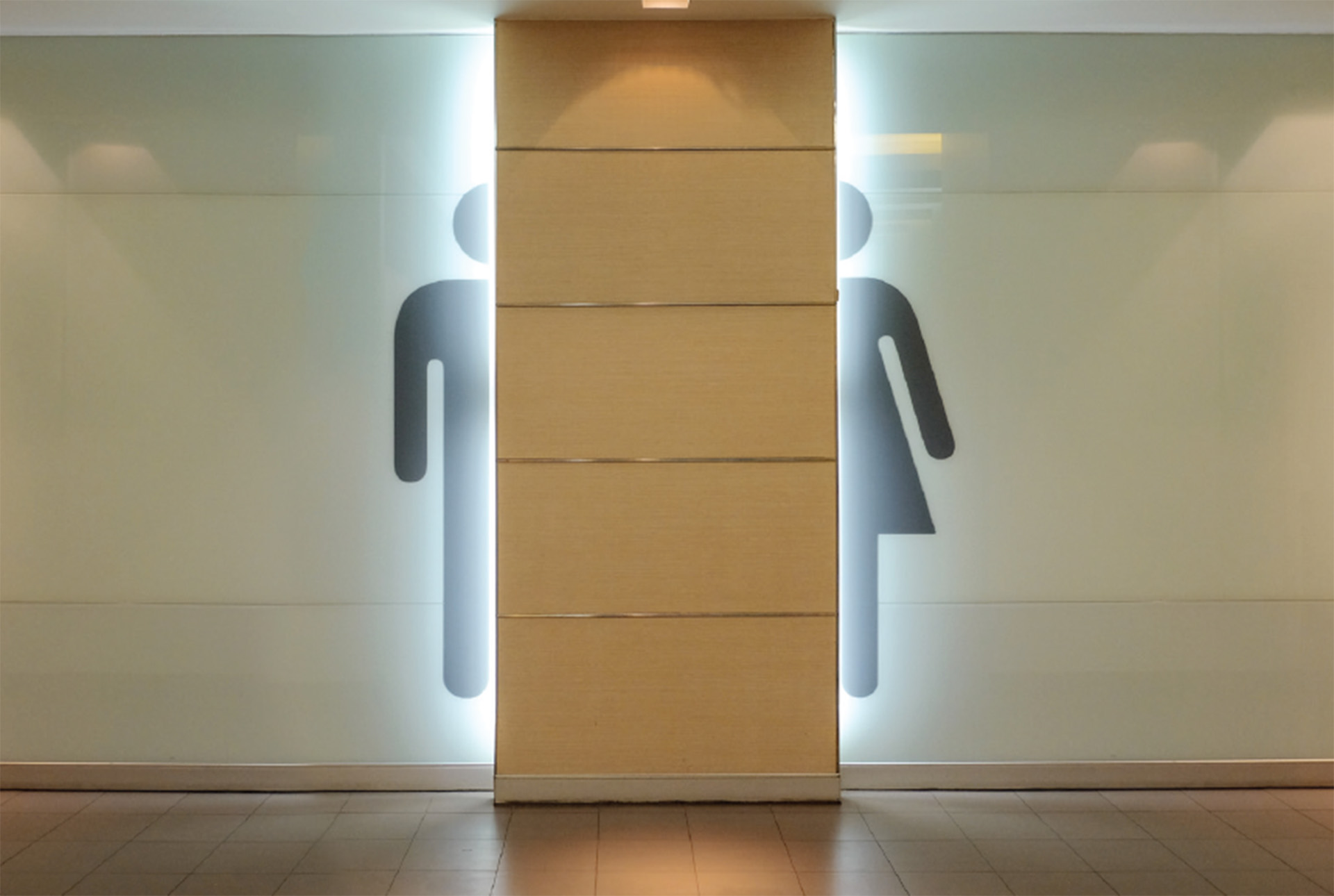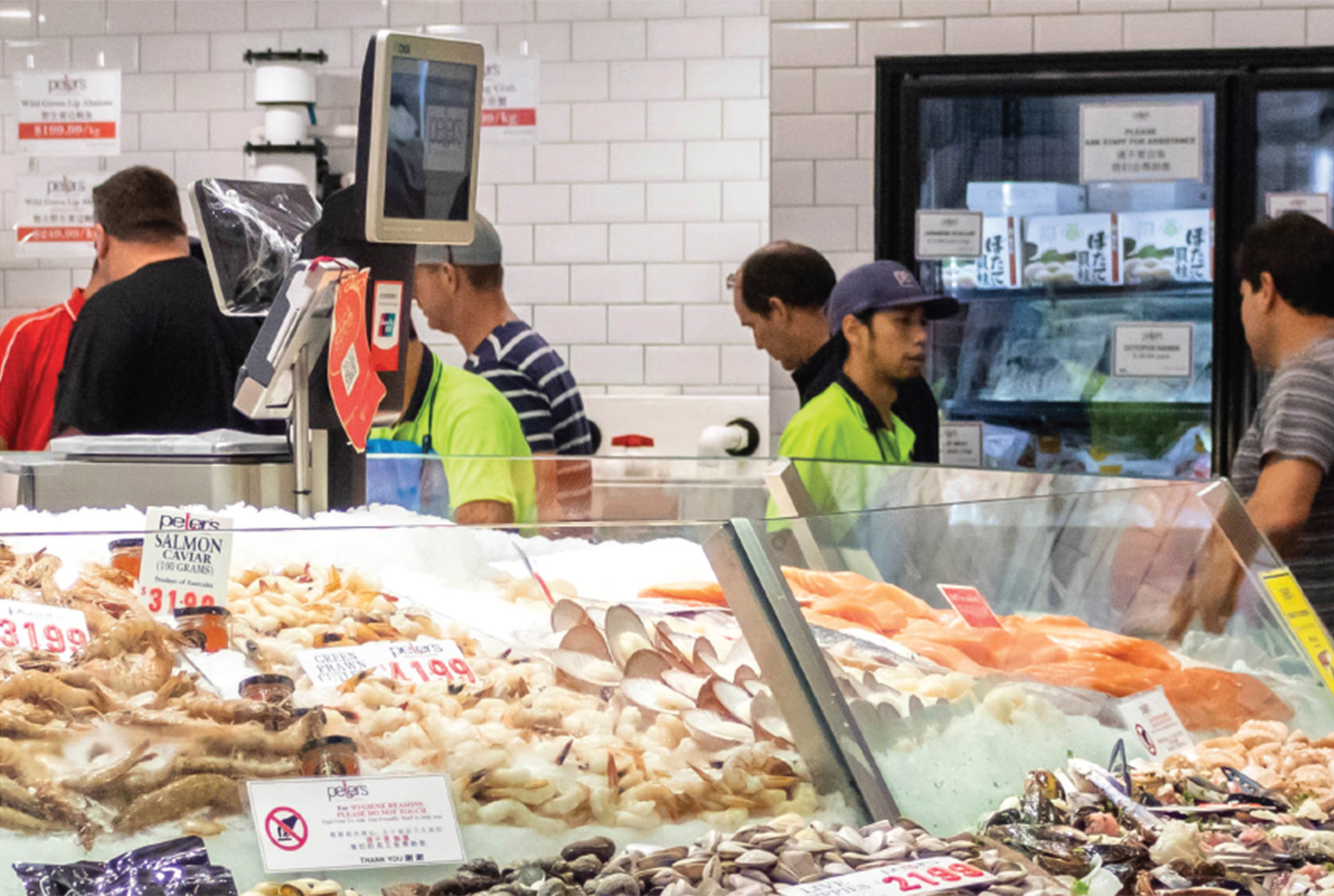In an initiative to redefine sustainable practices across its operations and supply chains, Bunzl Asia Pacific has launched a new sustainability strategy: We Believe in Better. This comprehensive initiative marks a major evolution in Bunzl’s approach to sustainability, reinforcing the company’s commitment to creating positive, lasting impacts across its operations and supply chains. As sustainability becomes a more pressing concern for businesses worldwide, this new strategy reflects a dedication to leading by example and helping customers identify and achieve their own sustainability and Environmental, Social, Governance (ESG) goals.
The Evolution of Bunzl’s Sustainability Strategy
Bunzl’s initial sustainability journey began with a focus on helping customers navigate the complex world of sustainable products and packaging. However, this soon evolved into a broader, more ambitious approach following a materiality assessment. This assessment allowed Bunzl to deeply understand the environmental and social issues that mattered most to its customers and stakeholders. Four years on and this sustainability program has matured into a comprehensive strategy that is embedded throughout the organisation, touching all aspects of business operations.
“We Believe in Better brings together Bunzl’s sustainability initiatives under four key pillars,” explains Bunzl’s Head of Sustainability Felicity Kelly. “Each one aimed at addressing some of the world’s most critical issues and serving as a roadmap to guide company actions.”
As Bunzl strives to make a positive impact on its communities, the environment, and the wider business ecosystem, the strategy can be defined by its extension into all areas of business.
We Believe in Better brings together Bunzl’s sustainability initiatives under four key pillars, each aimed at addressing some of the world’s most critical issues.

Four Pillars of Sustainability:
1. Ethical Supply Chains
This pillar upholds Bunzl’s commitment to maintaining ethical practices throughout its supply chains. By 2025, the company aims for 90% of product spending in high-risk regions to come from assessed and compliant suppliers. Bunzl’s Ethical Sourcing Policy and Supplier Code of Conduct, supported by an auditing operation in Shanghai, ensure that suppliers adhere to stringent standards of human rights and working conditions. This pillar ensures that company supply chains are not only efficient but also socially responsible, helping businesses maintain ethical practices at every level.
2. Thriving Workforce and Community
Placing a high value on the wellbeing of its employees and the communities in which they operate, this pillar ensures Bunzl continues to foster an equitable and inclusive work environment, championing diversity and supporting local communities through partnerships and charitable initiatives. The aim is not only to ensure employee satisfaction but also to contribute to stronger, more resilient communities.
3. Climate Action
Bunzl is targeting Net Zero by 2030 for Scopes 1 and 2 emissions in the Asia Pacific, with a long-term goal of reaching Net Zero across Scopes 1, 2, and 3 by 2050. Initiatives such as efficient energy use, solar-powered distribution centres, and transitioning its vehicle fleet to hybrid or electric are already in motion, ensuring this pillar remains actionable to help Bunzl reduce its carbon footprint.
4. Circularity
Bunzl is a member of the Australian Packaging Covenant Organisation (APCO) and is actively working to minimise the negative impacts of packaging. By phasing out single-use plastics and sourcing reusable, recyclable, or compostable packaging, the company is driving the transition toward a circular economy. Its focus on circularity helps other businesses and customers reduce waste and environmental impact, aligning with global efforts to create more sustainable packaging solutions.
Looking Ahead
While Bunzl is proud of the strides it has made, the company is even more excited about the opportunities that lie ahead. “We Believe in Better is not just about meeting mandatory standards, but about exceeding them” says Managing Director of Bunzl Asia Pacific Scott Mayne. “It’s about sharing the journey transparently, and collaborating with suppliers and customers to tackle significant challenges, while also improving their business practices.”









